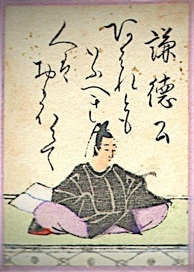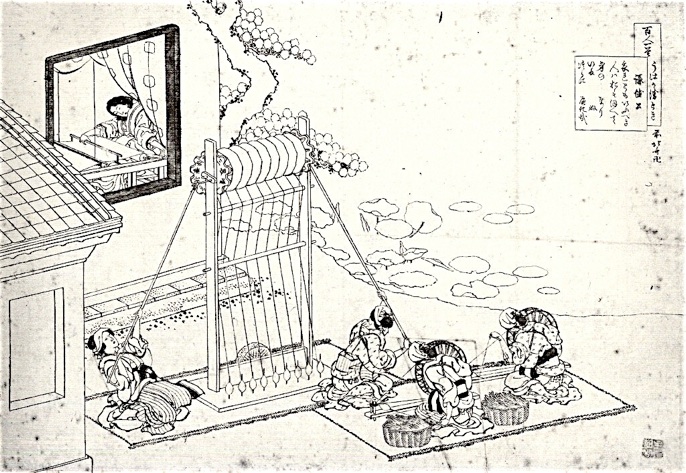謙徳公

あはれとも
いふべき人は
思ほえで
身のいたづらに
なりぬべきかな
けんとくこう
あわれとも
いうべきひとは
おもおえで
みのいたずらに
なりぬべきかな
Fujiwara no Koremasa
Pitying words
Spoken by anyone
There be none
Now my love and life
Are finally lost.
Hokusai
Fujiwara no Koremasa (924 - 972), also called Koretada or Kentokuko, was a kugyo (aristocrat) who served as regent. He is usually credited with solidifying the dominance of the Fujiwara family in the imperial court. His poems were published in ‘The Collected Poems of the First Ward Regent’, Ichijo Sessho Gyoshu. He was the grandson of Fujiwara no Yoshitaka (poem 50).
This poem is said to have been sent to a woman who did not reply to earlier amorous entreaties. We may wonder whether the word hito refers to people in general or the woman he sent this poem to.
The pivot words aware to mo (this is so pitiful) could also be read as aware tomo (meet a friend).
The scene Hokusai depicts is a group of women spinning in early spring. A weaver inside the house is looking at them. This could refer to the Tanabata story with the weaver (see poem 6). However, the spinning drum on the drawing is inscribed with Buddhist phrases (‘nothing exists apart from the mind or heart’) suggesting an allegorical meaning according to Keyes, who calls it ‘an allegory of creativity and the nature of art’.


